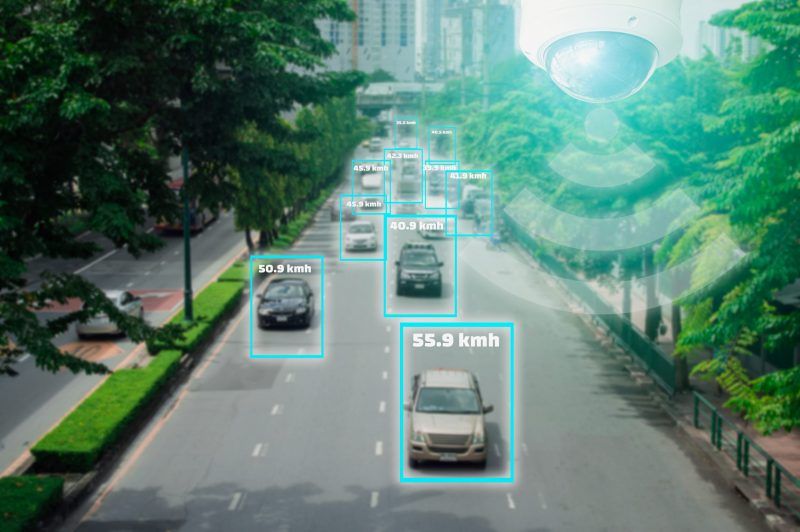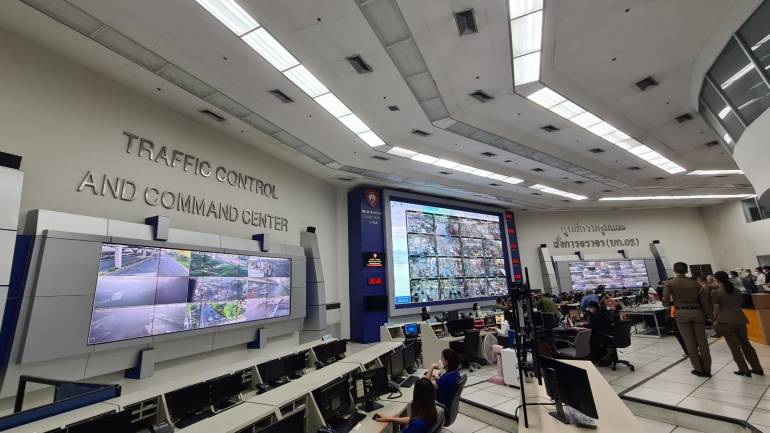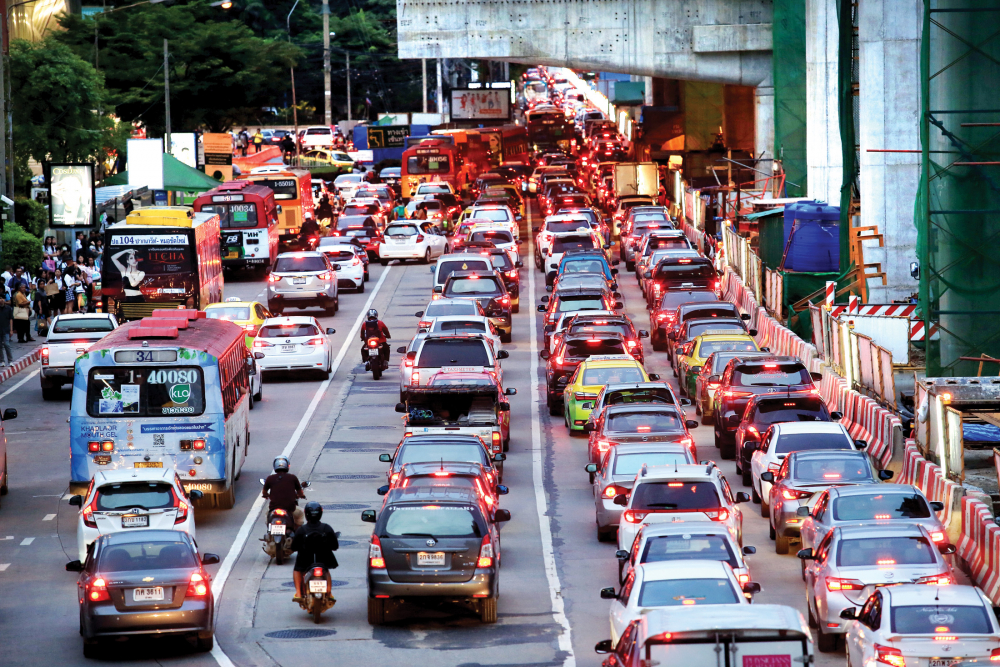News
Bangkok Trials Automatic Traffic-Management System to End Traffic Jams

In a test experiment aiming at increasing traffic flow along four city roadways, the Bangkok Metropolitan Administration (BMA) has established an autonomous traffic-management system.
The system was installed at 13 junctions on Rama VI Road, Ratchawithi Road, Phahon Yothin Road, and Praditpat Road, according to Bangkok governor Chadchart Sittipunt, who presided over the launch.
He stated that around 1,000 officers are currently deployed to control traffic lights throughout the city, with half of them serving as traffic light controllers. However, sharing information between units is inefficient.
The new Bangkok Area Traffic Control Project (BATCP) will collect data such as density, wait time at lights, and tailback sites to better traffic management and prevent congestion from increasing, he said, adding that it would also assist cops minimise their burden.
By 2026, the BMA intends to expand the sophisticated traffic-management system to encompass 500 locations throughout the capital. In the future, motorists may be able to access traffic information on their cellphones, allowing them to plan their travel ahead of time.
According to Bangkok deputy governor Visanu Samsompol, cameras are mounted at intersections and linked to a city-wide control system to improve network synchronisation.
He stated that congestion detection technology will be installed to compute traffic signal timing, and volumetric data will be used to assist police in traffic control.
Mr Visanu stated that the Area Traffic Control system is intended to increase traffic flow by 10% during peak periods and by 30% during non-peak periods.
He stated that the BMA has gotten assistance from the Japan International Cooperation Agency (Jica) in the system’s implementation.
Traffic in Bangkok
Bangkok, Thailand’s capital, is infamous for its terrible traffic congestion. Congestion is exacerbated by the city’s increasing urbanisation, massive population, and enormous number of automobiles. On weekdays, rush hours in Bangkok typically occur in the morning (7:00 AM to 9:00 AM) and evening (5:00 PM to 8:00 PM). Traffic can be particularly heavy during these times, especially on major routes and highways.
The traffic situation might change due to a variety of variables such as weather, special events, road work, and accidents. Certain regions of Bangkok, particularly the city centre and business districts such as Sukhumvit, Silom, and Sathorn, are frequently clogged with traffic.
The Bangkok Metropolitan Administration (BMA) has implemented numerous efforts to reduce traffic congestion, including the development of mass transit systems such as the BTS Skytrain, MRT metro, and Airport Rail Link. By providing alternate forms of transportation, these public transportation options have helped to ease traffic congestion to some extent.
Furthermore, ride-hailing services such as Grab and local taxis are popular in Bangkok and can be convenient methods to explore the city, especially during peak hours. Motorcycles and motorcycle taxis are especially popular for quick travels since they can swiftly weave through traffic.
It is crucial to remember that Bangkok’s traffic condition might alter over time owing to continuing infrastructure development and changes in transportation policies. It is best to consult local traffic news sources, online mapping services, or mobile applications that provide real-time traffic updates particular to Bangkok for the most up-to-date information on traffic conditions.
Preps trial of autonomous bus in Bangkok
In March of this year to capitalise on the trend, King Mongkut’s University of Technology Thonburi (KMUTT) and four local companies in the telecom and autonomous vehicle industries launched the creation of the country’s first unmanned electric bus.
The pilot project intends to test an unmanned electric bus in Ayutthaya Historical Park before the end of the year.
According to KMUTT president Suvit Saetia, the initiative is preparing for private-sector commercial unmanned electric vehicle (EV) service while also supplementing the EV value chain.
Mr Suvit stated that the automobile industry has been a key driver of the Thai economy for more than 50 years. The new industry paradigm emphasises development through four criteria known as “CASE,” which stands for connected vehicles, autonomous vehicles, shared mobility, and electric cars.
The EV bus project with a 5G platform is funded by the National Broadcasting and Telecommunications Commission with 27 million baht.
Turnkey Communication Services (TKC), a SET-listed digital solutions provider, Gen Serv Co, an autonomous vehicle platform and robotics supplier, Panus Assembly, a transport service, and Nex Point, an EV firm, are the four local partners.
According to Yossapong Laoonual, director of KMUTT’s Mobility & Vehicle Tech Research Centre, the project’s goal is to create a prototype of an autonomous EV bus with a seating capacity of up to 20 people. The trial service is available on the roadways of Ayutthaya Historical Park.
The driverless bus connects to the cellular vehicle-to-everything (C-V2X) platform through a 5G connection.
According to Piya Jirapapongsa, TKC’s deputy managing director, the initiative brings together experience in telecom and digital solutions, robotics and autonomous cars, transportation, and electric vehicles.
The 5G connection is the primary mode of communication enabling the C-V2X to interact with all roadside settings, including pedestrians, infrastructure, traffic lights, and the cloud network.
Mr Piya stated that the project is intended to pave the road for commercial market development while also encouraging students and researchers to join, thereby expanding the learning curve of the autonomous vehicle sector in the long run.
According to Wareemon Purapati, CEO of Gen Serv, the collaboration will increase the capacities of all stakeholders while increasing public trust in the autonomous car business.
Vehicle manufacturers, computing platforms, system integration, simulation, high-definition maps, sensors, fleet management, and drive-by wireless systems are all part of the industry value chain.






























